Growing with Our Investors—TEDA Striding Ahead (1990-1994) (Part II)
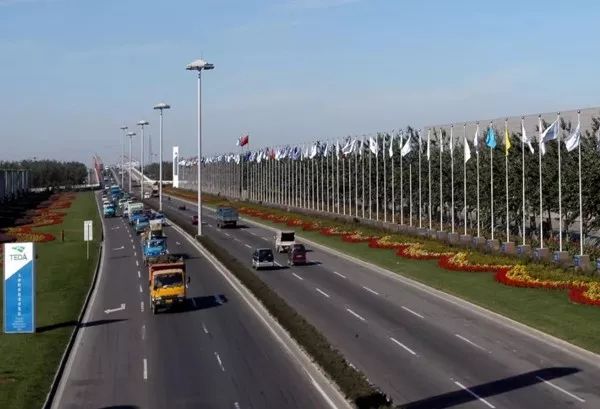
In 1992, global communication giant Motorola completed its investment registration procedures in TEDA with $120 million, and became the first large-scale hi-tech multinational corporation to set up a solely-owned company in China. With Motorola taking the lead, multinationals from various fields such as Samsung, Novo Nordisk, Nestlé, and SEW flocked in. After just a few years, this once deserted salt pan ushered in its own spring.

In TEDA’s 40 years of development, Motorola plays an unquestionably significant role. It is the first large-scale hi-tech multinational to invest in China, the first hi-tech project in TEDA, the largest and most advanced manufacturing base globally for Motorola, and the “Whampoa Military Academy” of the Chinese mobile phone industry. Motorola’s entry into the Chinese market via TEDA lifted itself to the top of the industry.
However, there is a long story behind the settle-down of this telecommunications giant in TEDA. As early as 1987, upon learning of Motorola’s intention to invest and establish a factory in China, TEDA swiftly initiated contact with the company. TEDA maintained consistent enthusiasm and dedication towards Motorola. To persuade Motorola, TEDA made thorough preparation. Senior executives of TEDA Administrative Commission were so familiar with the company’s products and technologies as if those were treasures of their own. Where there is sincerity, there is success. In 1988, the two sides entered the negotiation stage. TEDA assembled a team with a good knowledge about policies and communication industry and promptly addressed the company’s queries and doubts. After four years of negotiation, in 1992, Motorola completed its investment registration procedures in TEDA with $120 million. The news stunned the world.

Motorola’s growth in TEDA exceeded investors’ expectation. “We originally expected to incur losses for the first year in Tianjin. To our surprise, the pager business turned profitable in the very first year, which demonstrated China’s significant demand for communication products as a result of the reform and opening-up,” said Patrick Choy, former Senior Vice President of Motorola Inc. Subsequently, Motorola and TEDA joined hands and became heavyweight players in the global communication industry. Their partnership turned out to be a paradigm of win-win cooperation. By 2006, Motorola Tianjin company saw approximately $10 billion of sales revenue, accounting for over 10% of Tianjin’s total industrial products sales. It also contributed more than 18% to the city’s exports. Thanks to Motorola, TEDA and Tianjin’s electronics and information industry flourished, making Tianjin one of the biggest mobile phone manufacturing bases in China and the world.
After settling down in TEDA, Motorola brought in a wealth of world-leading communication and semiconductor technologies to Tianjin. Many local companies became Motorola’s suppliers and ventured into the international market. The spillover effects of Motorola’s technology, talent, and management continue to influence the development of China’s wireless communication industry to this day.

Motorola is one of the many investment success stories in TEDA in the 1990s. Another star enterprise, Master Kong, also deserves a special mention. In December 1991, the Wei brothers from Taiwan established a food company in TEDA with the plan to produce instant noodles. After market research, the company decided to make braised beef noodles its flagship product and gave the enterprise a resounding name as “Master Kong”.
Although Master Kong started up as a small food company, TEDA always adheres to the concept of “investors are kings and projects are lifelines,” and spared no effort to serve it. When the company was just established, due to financial constraints, the purchased factory building did not totally meet fire safety regulations for building its own boiler room. However, processes such as noodles steaming and frying, which are essential to the production of instant noodles, require the use of steam. Anxiously, Master Kong sought help from TEDA Administrative Commission. TEDA actively coordinated relevant departments to study the issue and, under the premise of complying with relevant regulations, helped the enterprise solve this problem.
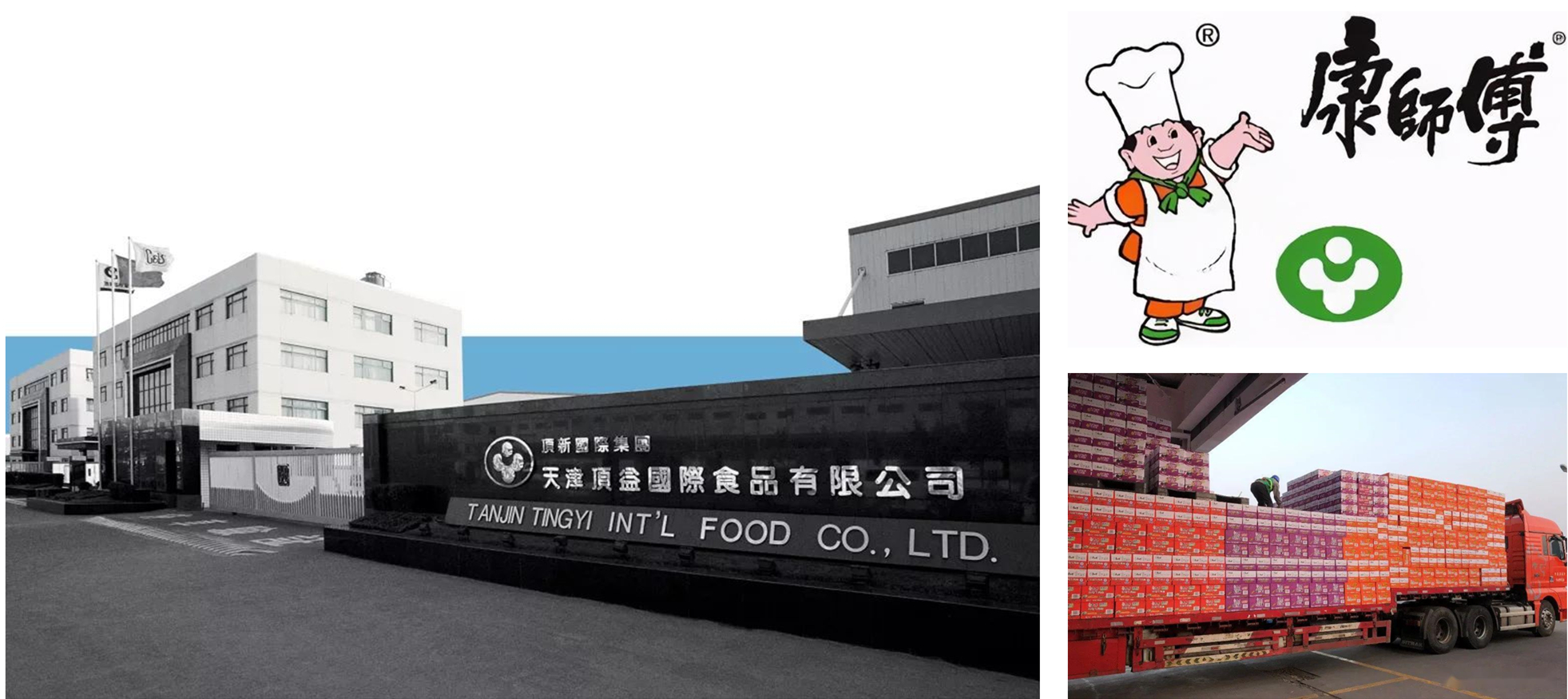
After Master Kong braised beef noodles were launched, senior executives of TEDA Administrative Commission brainstormed ways to help the enterprise expand its market share. They mobilized cadres and staffs to buy instant noodles and recommend the brand to more friends and relatives. With efforts from all sides, Master Kong’s braised beef noodles, which came with beef sauce packets, paper bowls and plastic forks, quickly opened up the market, and orders poured in. Trucks loaded with instant noodles shuttled on the flat roads of TEDA, heading to various parts of the country. Master Kong quickly rose to prominence and became a landmark enterprise of Tianjin’s food industry.
Having tasted success, Master Kong became even more confident in deepening its presence in TEDA and continued to increase investment and expand production scale. As of now, the group has invested in and established 30 enterprises in TEDA, including 18 production-oriented enterprises, 3 investment-oriented enterprises, and 9 service-oriented enterprises. The TEDA base is the largest and most fully-fledged food production base in China for the Master Kong Group.
Starting from TEDA, Master Kong has grown into a leading enterprise in the global fast-moving consumer goods industry. Over the years, it has fostered a multi-dimensional industrial network spanning horizontal fields such as convenience food, beverages and catering, and comprising vertical processes such as packaging, ingredients, and finished products. Whenever the founder of the company, Ing-Chou Wei, talks about TEDA, the place where his business started and flourished, he always expresses his emotions, saying, “Without TEDA, there would be no Master Kong. I am very fortunate that we chose the right place back then.”

Like Master Kong, Novo Nordisk is always full of confidence in TEDA. Not long ago, this globally leading biopharmaceutical company announced an additional investment of approximately 4 billion yuan in Tianjin for the fill & finish expansion project to meet the demand of Chinese patients for innovative medicine. This marks Novo Nordisk’s third capital increase in TEDA in nearly three years.
Growing in Tianjin for 30 years, Novo Nordisk has been impressed by TEDA’s rapid response as well as efficient and professional services, and benefited a lot from all these. In 1993, Novo Nordisk came to TEDA for investment environment investigation. TEDA quickly assembled a negotiation team consisting of personnel from departments such as investment promotion, industry and commerce administration, land, environmental protection, taxation, customs, banks, as well as accountants, lawyers and other professionals, making the negotiation process fast and efficient. During the negotiations, TEDA did not make throwaway promises to impress enterprises but pragmatically and sincerely evaluated the feasibility of the plan based on national policies at that time, and, together with the investor, explored alternative solutions. In order to persuade Novo Nordisk, TEDA leaders visited the company’s headquarters in Denmark after the negotiations. In the end, Novo Nordisk chose TEDA. From submission of the project to relevant ministries to the final approval by the State Council, the entire process took less than a month. The efficiency of TEDA and China once again impressed Novo Nordisk.
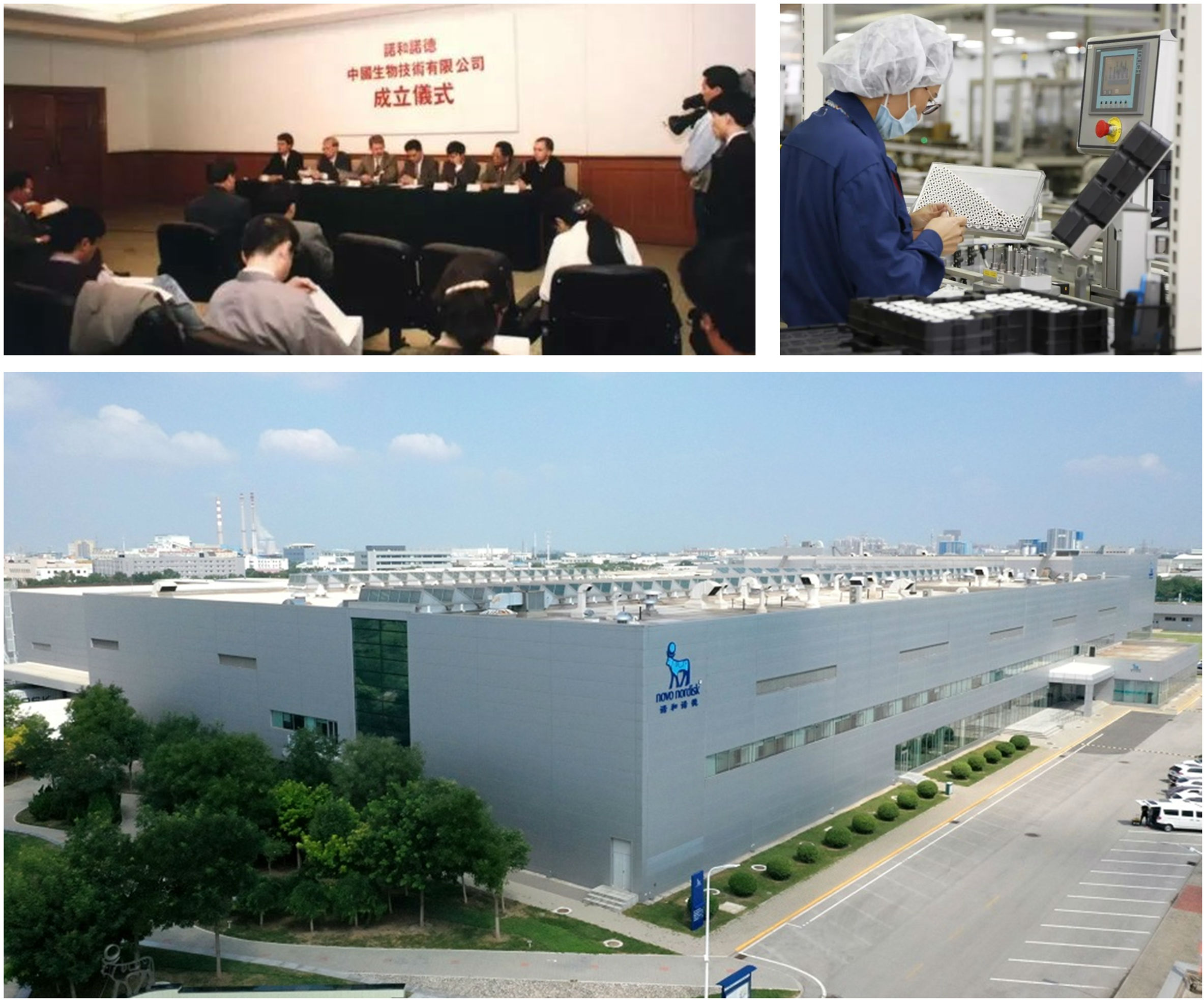
In 1994, the Board of Directors of Novo Nordisk decided to invest $243 million to build a factory in TEDA, which was the company’s largest single investment outside its home country. It was widely believed in the industry that the introduction of this project narrowed the gap between China’s biotechnology and pharmaceutical production level and the world’s advanced level by 20 years.
In the decades since, Novo Nordisk has continuously upgraded production lines and expanded production scale, becoming a pacesetter in the field of biopharmaceutical in Tianjin. Lars Arnoldsen, Corporate Vice President of Novo Nordisk Global and President of Novo Nordisk Tianjin, said, “As one of Novo Nordisk’s strategic production bases, Site Tianjin plays an important role in our global supply chain.”

The settle-down of global food giant Nestlé is a story about how TEDA proactively contacts clients and persuades them with professionalism.
Before negotiating with Nestlé, TEDA had conducted sufficient market research and understood the needs of multinational corporations, especially those in the food industry——to tap into China’s huge market. TEDA helped Nestlé obtain policy permits for domestic sales. At that time, TEDA fully met the transportation conditions required for fast-moving consumer goods. Additionally, the complete industrial chain of paper package, plastic package, and printing in and around TEDA made the settle-down of Nestlé exceptionally smooth.
In 1994, Nestlé established its first factory in TEDA. In 1995, Nestlé established its Asia-Pacific Quality Assurance Center in TEDA, which is also one of Nestlé’s most important businesses in Tianjin. This center provided not only food safety and quality testing services to more than thirty factories of Nestlé in China at that time but also inspection services to imported food by Nestlé from abroad together with technical support. The establishment of such an important testing institution fully demonstrates Nestlé’s recognition of TEDA.
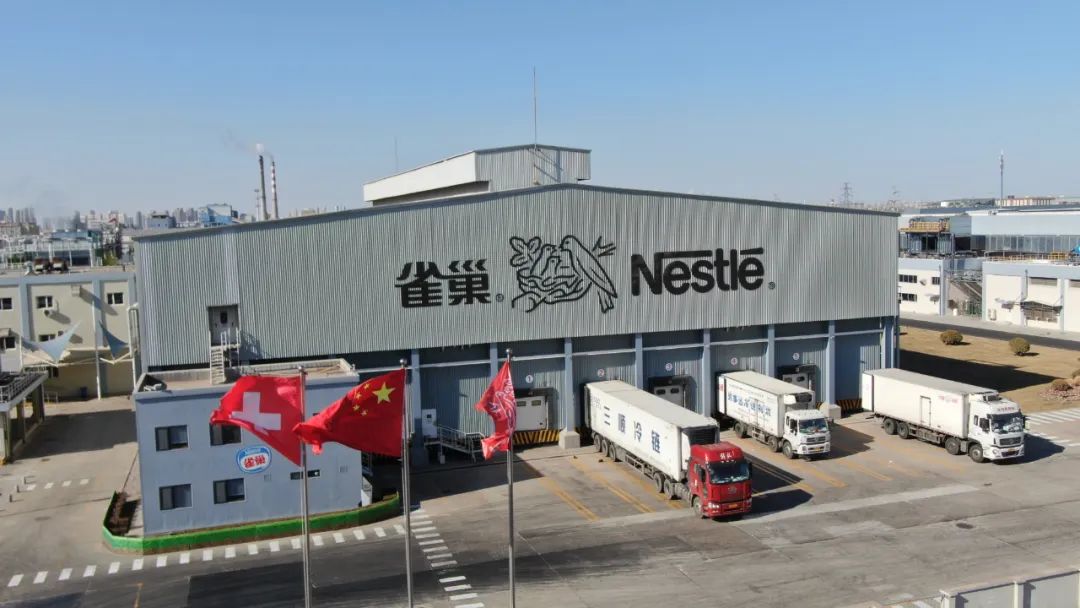
Later, Nestlé kept on utilizing policy advantages of China (Tianjin) Pilot Free Trade Zone as TEDA continued to upgrade its business environment. From 2010 to 2018, to enter Nestlé’s QA center, imported food samples were required to follow procedures for imported finished food products, which not only increased time cost for customs clearance but also increased the difficulty of customs declaration due to regulatory differences. After learning about this situation, TEDA, together with the Entry-Exit Inspection and Quarantine Bureau, Tianjin Customs and other departments, carefully studied relevant documents and regulations. Finally, through multi-party discussion, it was decided to operate in accordance with the Management Regulations for Imported Food and Cosmetics Samples for Testing or Internal Use within Free Trade Zones. The practice significantly simplified inspection and quarantine process, reduced sampling and testing steps, accelerated customs clearance of relevant products, and lowered costs for investors.
An executive from Nestlé stated: “All TEDA departments we have ever contacted, including customs, quality inspection, and market supervision, are very efficient. Efficient problem-solving saves us time.” Because of this, Nestlé decided to invest more and launch more innovative products and technologies here. Since 2020, Nestlé’s total investment in Tianjin has exceeded 1 billion yuan. Currently, Nestlé has 2 factories, 1 quality assurance center, 1 product innovation center, and 1 sales branch in TEDA, with its product portfolio covering Nestlé’s core businesses such as ice cream, cocoa products, candies, plant-based foods, and pet foods.
From production to testing and R&D, Nestlé continues to enhance its presence in TEDA. Superior business environment in TEDA facilitated the growth of enterprises and boosted their confidence in Tianjin. In return, these leading enterprises became growth engines for TEDA’s industries and fostered more fully-fledged industrial chains.
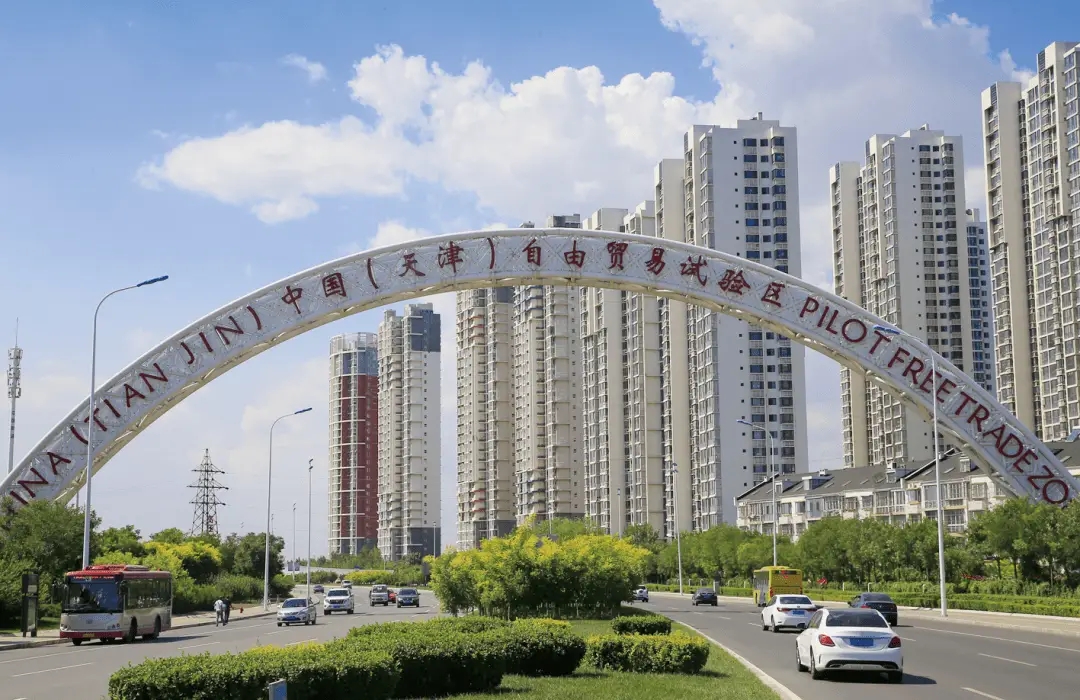
For multinational investors, TEDA’s open and high-quality investment environment and all-round high-level services are crucial. As an executive from Motorola said, “From the very beginning, one of the critical reasons in Motorola’s choice of TEDA was the very efficient, pragmatic, and open-minded working philosophy of TEDA Administrative Commission.”
These world-renowned multinationals brought about advanced technologies, narrowed down technological gaps in certain fields, and shortened the distance between China and the advanced level of the world. They play an irreplaceable role in promoting China’s industrial modernization process. Following in the footsteps of large-scale multinationals, a batch of foreign suppliers also settled down in TEDA. Local companies found access to the global manufacturing and supply chain, which boosted the upgrade of local products and promoted the overall advancement of TEDA’s industrial level. Moreover, the scientific management methods and various professional talents from multinationals also laid the foundation for the further upgrading of TEDA’s industries.













 津公网安备 12019002000128号
津公网安备 12019002000128号

